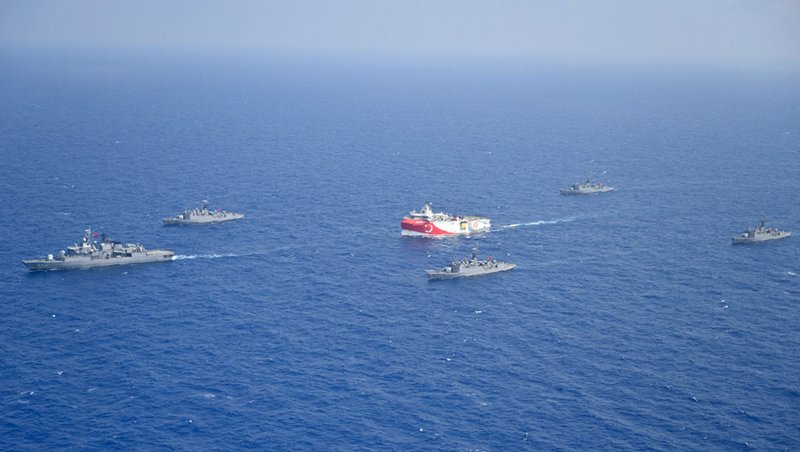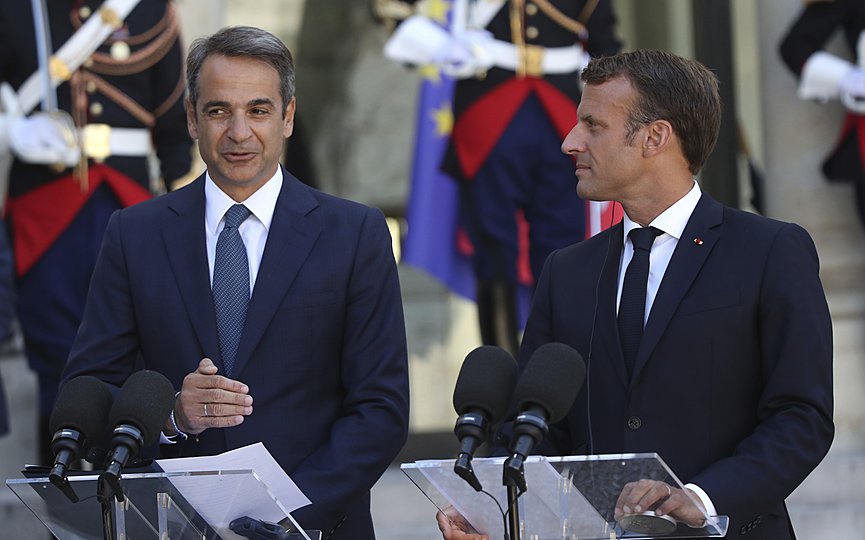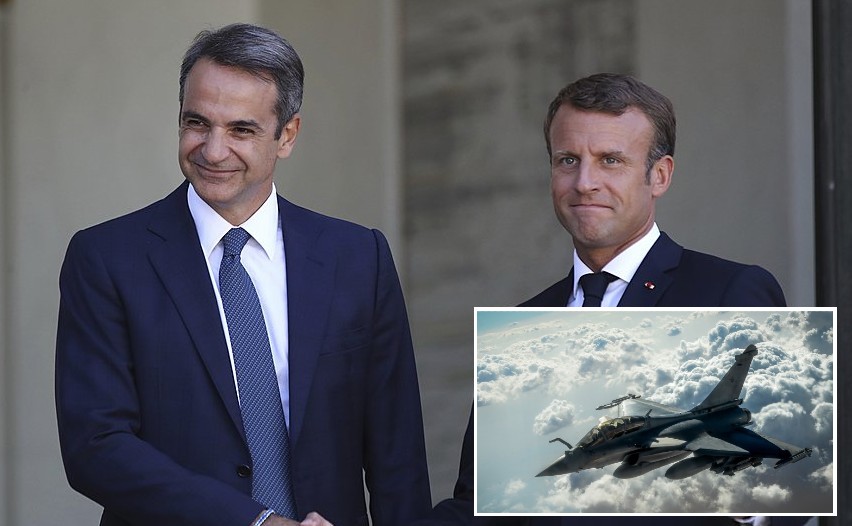Greece’s prime minister warmly thanked France on Thursday for its decision to boost its military presence in the eastern Mediterranean, where Greek and Turkish warships are closely shadowing each other over a Turkish energy exploration bid in waters Athens claims as its own.
Kyriakos Mitsotakis tweeted that French President Emmanuel Macron is “a true friend of Greece and also a fervent protector of European values and international law.”
The mounting tension follows Turkey’s move Monday to send a seismic research vessel, escorted by warships, into waters between the Greek island of Crete and Cyprus to prospect for potential offshore gas and oil reserves, following similar discoveries in other parts of the region.
The Turkish leader accused France of “provoking” Greece and Cyprus into taking “wrongful steps.”
France’s armed forces ministry confirmed it was dispatching two Rafale fighter jets and a naval frigate to the eastern Mediterranean after Macron voiced grave concern over the situation.
At sea, the French Lafayette frigate left Cyprus’ port of Larnaca and took part in a maritime exercise with the Greek Navy, the statement said. The Lafayette overnight joined the French helicopter carrier Tonnerre, en route to help Lebanon following the devastating explosion in Beirut.

“That military presence is aiming at reinforcing France’s autonomous assessment of the situation and affirms the country’s attachment to free movement, maritime safety and respect for international law in the Mediterranean Sea,” the ministry said.
Macron announced following a phone call with Mitsotakis late Wednesday that he has decided to “temporarily reinforce the French military presence in the Eastern Mediterranean in the coming days, in cooperation with European partners including Greece.”
Greece’s NATO and European Union ally France is the EU’s biggest military power.

In a televised statement Wednesday, Mitsotakis warned of the “risk of an accident” in the area where the Greek and Turkish warships are gathered.
“In such a case, responsibility lies upon the one who gives rise to these circumstances,” he said. He added that Greece is not averse to “even the toughest dialogue,” but that “dialogue becomes irrelevant in a climate of tension and provocation.”
“We will never be the ones to escalate the situation. Yet, self-restraint is only one aspect of our power,” Mitsotakis said. “No provocation will … go unanswered.”
Sourced By: Associated Press
